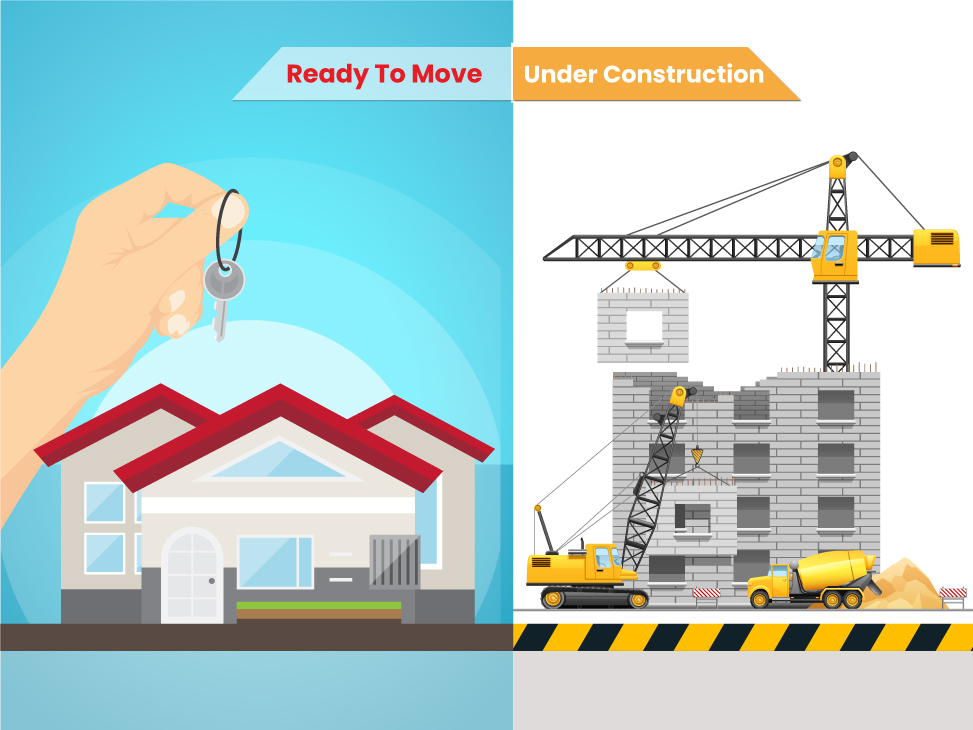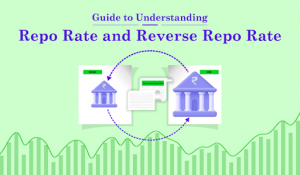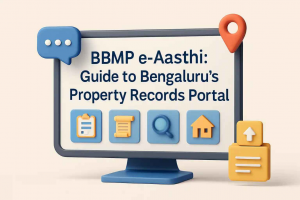When it comes to buying a home or making a real estate investment, one of the biggest dilemmas faced by buyers is whether to go for an under-construction property or a ready possession property. Both options have unique advantages and drawbacks, and the right choice depends largely on your financial situation, lifestyle needs, and long-term investment goals.
In India’s real estate market, under-construction projects have traditionally been popular among younger buyers due to their relatively lower cost and flexibility in payment. On the other hand, ready possession properties appeal to buyers who want immediate occupancy and clarity on what they are purchasing.
This blog will cover every important aspect of both property types, including the benefits of buying under-construction property, the disadvantages of ready possession, taxation implications, home loan timing, legal agreements, and much more. By the end, you’ll have a clear picture of which option might be the right fit for you.
What Are the Benefits of Buying Under-Construction Property?

Buying an under-construction property offers several advantages:
- Lower Price Point – Compared to ready possession homes, under-construction properties are generally priced lower, allowing you to enter the market with less capital.
- Flexible Payment Plans – Builders usually offer staggered payment options, making it easier for salaried individuals to manage finances.
- Better Appreciation Potential – Since property prices often rise during the construction phase, early investors can benefit from significant appreciation.
- Customization Options – Buyers sometimes have the flexibility to request layout changes, flooring upgrades, or other interior modifications before possession.
- Modern Amenities – New projects usually come equipped with advanced amenities like clubhouses, gyms, landscaped gardens, and security systems.
Also Read:- Top Amenities to Look for When Choosing a Residential Property in Mumbai
Thus, for long-term investors looking for higher appreciation and flexible payment schedules, under-construction projects can be very attractive.
What Are the Disadvantages of Under-Construction Property?

While appealing, under-construction properties are not without challenges:
- Possession Delays – Project delays are one of the biggest risks, often stretching beyond promised timelines.
- Market Uncertainty – If property demand falls, resale can be difficult before project completion.
- Risk of Developer Default – In rare cases, a builder may abandon the project, leaving buyers in limbo.
- Quality Concerns – The final product may differ from the brochures and promises made at the time of booking.
- Double Burden of Rent + EMI – If you’re living in a rented home, you might have to pay both rent and pre-EMI until possession.
Also Read:- Step By Step Guide: How to Claim HRA for Rent Paid in Another City in 2025
Can I Sell Under-Construction Flat Before Possession?
Yes, you can sell an under-construction property before taking possession. However, the process depends on the terms of the sale agreement for under-construction flat and whether the developer allows transfers.
Some builders may charge a nominal transfer fee, and in most cases, you’ll need to execute a tripartite agreement involving the builder, the new buyer, and yourself.
Can We Sell Under-Construction Flat After Registration?
Yes, once the property is registered in your name, you can resell it. However, this requires complying with RERA regulations and local authority rules.
In such cases, the buyer and seller typically execute a resale deed, and applicable stamp duty and registration charges are borne by the new buyer.
What Is the Sale Agreement for Under-Construction Flat?

The sale agreement for an under-construction flat is a legally binding contract between the buyer and the builder. It defines:
- The agreed price and payment schedule
- Construction milestones
- Possession date
- Penalties for delay
- Builder obligations
In Maharashtra, for example, builders must follow the MahaRERA agreement for sale format, which ensures transparency and protects the buyer’s rights.
Also Read:- Can I Buy Property without Registered on RERA?
When to Pay Stamp Duty and Registration for Under-Construction Property?
Stamp duty and registration charges are generally payable at the time of executing the agreement to sell, not at the time of possession.
In many states, including Maharashtra, these charges must be paid upfront once the agreement for sale is signed, even if construction is not complete.
When to Take Home Loan for Under-Construction Property?
You can apply for a home loan as soon as the builder receives all necessary approvals for the project. Banks typically disburse funds in phases based on construction progress.
This helps ensure that you’re not paying interest on the entire loan amount from day one. Instead, you only pay for the part that has been disbursed.
How Does the Under-Construction Home Loan EMI Calculator Help?
An under-construction home loan EMI calculator helps you determine the exact pre-EMI you’ll pay until the property is ready for possession.
Pre-EMI means you’re paying interest only on the disbursed loan amount, not the full sanctioned loan. This calculator is crucial for planning monthly expenses and avoiding financial stress.
What Are the Benefits of Buying Ready Possession Property?

Ready possession homes come with several benefits:
- Immediate Occupancy – Perfect for buyers who need a home right away.
- What You See Is What You Get – No risk of the property differing from what was promised.
- No Construction Delays – The property is already complete.
- Immediate Rental Income – Investors can start generating returns immediately by renting out the unit.
- Clear Legal Standing – Since the property is complete, it usually comes with occupancy certificates and other required clearances.
What Are the Disadvantages of Ready Possession Property?

Despite the advantages, ready-to-move homes have drawbacks:
- Higher Costs – Ready properties are usually priced higher than under-construction projects.
- Lump Sum Payment – Buyers need to arrange the full payment immediately, which can be financially straining.
- Lower Appreciation Potential – Most price appreciation has already occurred by the time the property is ready.
- Older Amenities – If the building is not new, the amenities may be outdated.
- Limited Customization – Buyers cannot make layout or design changes.
Under-Construction vs Ready Possession: Which One Should You Choose?
Your choice should depend on your specific requirements:
- If you’re an end-user who needs immediate housing, ready possession property is the better choice.
- If you’re an investor aiming for appreciation and can wait, under-construction property might yield better returns.
- If budget is a concern, under-construction often offers a more affordable entry point.
- If you prefer risk-free certainty, ready possession is safer.
Also Read:-
Conclusion
Choosing between under-construction and ready possession property depends on your financial condition, risk appetite, and long-term goals.
- Under-construction properties offer affordability, flexibility, and appreciation potential but come with risks like delays and uncertainty.
- Ready possession homes give you instant occupancy, rental income, and peace of mind but usually at a premium price.
At Housiey, we believe in empowering buyers with the right knowledge so that their real estate journey remains smooth and transparent. Whether you’re buying your dream home or making an investment, our platform connects you directly with developers, cutting out brokers and ensuring hassle-free transactions.
For further clarity, we strongly recommend you read our blog on “Pre EMI vs Full EMI”, which will help you understand the financial implications of under-construction home loans in depth.
FAQs
When it comes to buying a home or making a real estate investment, one of the biggest dilemmas faced by buyers is whether to go for an under-construction property or a ready possession property. Both options have unique advantages and drawbacks, and the right choice depends largely on your financial situation, lifestyle needs, and long-term investment goals.
In India’s real estate market, under-construction projects have traditionally been popular among younger buyers due to their relatively lower cost and flexibility in payment. On the other hand, ready possession properties appeal to buyers who want immediate occupancy and clarity on what they are purchasing.
This blog will cover every important aspect of both property types, including the benefits of buying under-construction property, the disadvantages of ready possession, taxation implications, home loan timing, legal agreements, and much more. By the end, you’ll have a clear picture of which option might be the right fit for you.
What Are the Benefits of Buying Under-Construction Property?

Buying an under-construction property offers several advantages:
- Lower Price Point – Compared to ready possession homes, under-construction properties are generally priced lower, allowing you to enter the market with less capital.
- Flexible Payment Plans – Builders usually offer staggered payment options, making it easier for salaried individuals to manage finances.
- Better Appreciation Potential – Since property prices often rise during the construction phase, early investors can benefit from significant appreciation.
- Customization Options – Buyers sometimes have the flexibility to request layout changes, flooring upgrades, or other interior modifications before possession.
- Modern Amenities – New projects usually come equipped with advanced amenities like clubhouses, gyms, landscaped gardens, and security systems.
Also Read:- Top Amenities to Look for When Choosing a Residential Property in Mumbai
Thus, for long-term investors looking for higher appreciation and flexible payment schedules, under-construction projects can be very attractive.
What Are the Disadvantages of Under-Construction Property?

While appealing, under-construction properties are not without challenges:
- Possession Delays – Project delays are one of the biggest risks, often stretching beyond promised timelines.
- Market Uncertainty – If property demand falls, resale can be difficult before project completion.
- Risk of Developer Default – In rare cases, a builder may abandon the project, leaving buyers in limbo.
- Quality Concerns – The final product may differ from the brochures and promises made at the time of booking.
- Double Burden of Rent + EMI – If you’re living in a rented home, you might have to pay both rent and pre-EMI until possession.
Also Read:- Step By Step Guide: How to Claim HRA for Rent Paid in Another City in 2025
Can I Sell Under-Construction Flat Before Possession?
Yes, you can sell an under-construction property before taking possession. However, the process depends on the terms of the sale agreement for under-construction flat and whether the developer allows transfers.
Some builders may charge a nominal transfer fee, and in most cases, you’ll need to execute a tripartite agreement involving the builder, the new buyer, and yourself.
Can We Sell Under-Construction Flat After Registration?
Yes, once the property is registered in your name, you can resell it. However, this requires complying with RERA regulations and local authority rules.
In such cases, the buyer and seller typically execute a resale deed, and applicable stamp duty and registration charges are borne by the new buyer.
What Is the Sale Agreement for Under-Construction Flat?

The sale agreement for an under-construction flat is a legally binding contract between the buyer and the builder. It defines:
- The agreed price and payment schedule
- Construction milestones
- Possession date
- Penalties for delay
- Builder obligations
In Maharashtra, for example, builders must follow the MahaRERA agreement for sale format, which ensures transparency and protects the buyer’s rights.
Also Read:- Can I Buy Property without Registered on RERA?
When to Pay Stamp Duty and Registration for Under-Construction Property?
Stamp duty and registration charges are generally payable at the time of executing the agreement to sell, not at the time of possession.
In many states, including Maharashtra, these charges must be paid upfront once the agreement for sale is signed, even if construction is not complete.
When to Take Home Loan for Under-Construction Property?
You can apply for a home loan as soon as the builder receives all necessary approvals for the project. Banks typically disburse funds in phases based on construction progress.
This helps ensure that you’re not paying interest on the entire loan amount from day one. Instead, you only pay for the part that has been disbursed.
How Does the Under-Construction Home Loan EMI Calculator Help?
An under-construction home loan EMI calculator helps you determine the exact pre-EMI you’ll pay until the property is ready for possession.
Pre-EMI means you’re paying interest only on the disbursed loan amount, not the full sanctioned loan. This calculator is crucial for planning monthly expenses and avoiding financial stress.
What Are the Benefits of Buying Ready Possession Property?

Ready possession homes come with several benefits:
- Immediate Occupancy – Perfect for buyers who need a home right away.
- What You See Is What You Get – No risk of the property differing from what was promised.
- No Construction Delays – The property is already complete.
- Immediate Rental Income – Investors can start generating returns immediately by renting out the unit.
- Clear Legal Standing – Since the property is complete, it usually comes with occupancy certificates and other required clearances.
What Are the Disadvantages of Ready Possession Property?

Despite the advantages, ready-to-move homes have drawbacks:
- Higher Costs – Ready properties are usually priced higher than under-construction projects.
- Lump Sum Payment – Buyers need to arrange the full payment immediately, which can be financially straining.
- Lower Appreciation Potential – Most price appreciation has already occurred by the time the property is ready.
- Older Amenities – If the building is not new, the amenities may be outdated.
- Limited Customization – Buyers cannot make layout or design changes.
Under-Construction vs Ready Possession: Which One Should You Choose?
Your choice should depend on your specific requirements:
- If you’re an end-user who needs immediate housing, ready possession property is the better choice.
- If you’re an investor aiming for appreciation and can wait, under-construction property might yield better returns.
- If budget is a concern, under-construction often offers a more affordable entry point.
- If you prefer risk-free certainty, ready possession is safer.
Also Read:-
Conclusion
Choosing between under-construction and ready possession property depends on your financial condition, risk appetite, and long-term goals.
- Under-construction properties offer affordability, flexibility, and appreciation potential but come with risks like delays and uncertainty.
- Ready possession homes give you instant occupancy, rental income, and peace of mind but usually at a premium price.
At Housiey, we believe in empowering buyers with the right knowledge so that their real estate journey remains smooth and transparent. Whether you’re buying your dream home or making an investment, our platform connects you directly with developers, cutting out brokers and ensuring hassle-free transactions.
For further clarity, we strongly recommend you read our blog on “Pre EMI vs Full EMI”, which will help you understand the financial implications of under-construction home loans in depth.
FAQs












